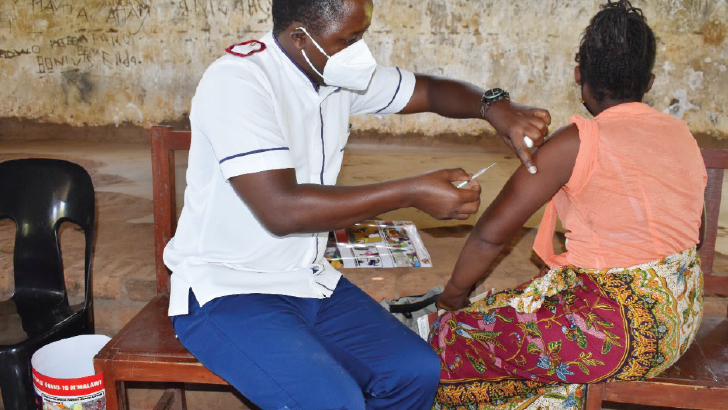Can we avoid emerging Covid variants?

In the wake of Covid-19, there have been numerous variants that have been emerging that have in turn been driving further waves of the pandemic. Our Staff Reporter LLOYD CHITSULO looks at the past two years of Covid-19 and its implications on humankind.
Covid-19 has for over two years now been causing various serious challenges across the globe.
One major impact of the pandemic has been on the global economy which has affected all countries of the world. Among other challenges, there have been job-cuts which has affected the livelihoods of millions of people across the world.
But just as the world was recovering from the pandemic, after the third wave that was, however, not as deadly as the first and second waves, two new Omicron sub-variants are said to have emerged, which experts fear could drive a fourth wave.
The new variants, classified as BA.4 and BA.5, were detected in South Africa, Botswana, Belgium, Denmark, Germany, United Kingdom and the United States.
Locally, scientists say the emergence of such new variants translate to the fact that Covid-19 is here to stay.
Infectious disease expert and public health specialist Dr Titus Divala says we cannot avoid new variants on the basis that they will keep emerging as long as the virus continues to replicate.
Divala says evidence suggests that uncontrolled spread of the virus is the recipe for these mutations.
He explains: “So, essentially the emergence of variants can be slowed down by slowing transmission. The most effective measures for reducing transmission include vaccinations, physical distancing, mask use and general avoidance of indoor gatherings, and practising hand and face hygiene.”
As regards to vaccination, Divala says the key is to make sure that everyone has received the recommended number of doses, including the booster dose.
The Covid-19 booster dose restores decreasing immunity and is administered after the primary series of vaccination for those aged 12 years and above, the experts say.
Currently, Malawi has three types of Covid-19 vaccines, which are Oxford/AstraZeneca, Pfizer and the Johnson and Johnson (J and J).
AstraZeneca and J and J vaccines are given twice at an interval of 12 weeks to those aged 18 and above while the Pfizer vaccine is given twice at an interval of four weeks to those aged 12 years and above.
According to Divala, the present vaccines provide a high level of protection against all known variants of concern (VOC), including Delta and Omicron.
Malawi has four VOCs as classified by the World Health Organisation (WHO), namely the Omicron variant (B.1.1.529), the Indian variant (Delta or B.1.617.2), the South African variant (Beta or B.1.351) and the United Kingdom variant (Alpha or B.1.1.7).
Characteristics of the VOCs include increased transmissibility and secondary attack for Alpha and Delta.
Divala says the current vaccines reduce risk of symptomatic Sars-Cov-2 infection by over 50 percent, getting hospitalised by over 80 percent and dying by over 90 percent.
“On the other side, you can also say that by reducing risk of infection, vaccines help minimise transmission and development of variants,” he says.
Kamuzu University of Health Sciences (Kuhes) professor in epidemiology Adamson Muula says it is important to treat emerging variants with caution while at the same time ensuring that there is no panic.
“Covid-19 has come to stay. I do not know when, but our star gazing at the different variants will wax and wane. New variants are less likely to be as ferocious as the previous one. In short, there is no reason to panic,” he says.
Just like Divala, Muula is also of the view that being vaccinated and taking the Covid-19 booster dose is one of the best public health interventions.
Presidential Task Force on Covid-19 co-chairperson Dr Wilfred Chalamila Nkhoma says what is most important at this point is to know that vaccination is the key to protect against the severe disease, hospitalisation and death from all known variants, including the BA.4 and BA.5.
He says: “This is in addition to following the recommended preventive measures, namely, wearing masks, maintaining social distance and washing hands regularly with soap or applying alcohol based sanitisers.
“These used together will help Malawi stay safe even if these variants enter our borders.”
Nkhoma further says Malawians should also be reminded that the country now has capability to identify the viruses and variants within the country and that laboratories are regularly tracking these viruses since the capability was established.
But despite the presence of vaccines, there has been hesitancy mainly due to myths and misconceptions.
The WHO says initial examinations show that the new Omicron variants are increasing in South Africa, despite no spike in cases.
While stressing that the Omicron variant remains the dominant variant circulating across the globe, the global health body says it is monitoring the new variants to determine whether they are dangerous and more infectious.
According to the WHO, the cases of the variants reported in South Africa displayed mild symptoms and that while the response of the variant on the unvaccinated is unknown, the reported cases were fully vaccinated.
While Malawi targets to vaccinate 11 million or roughly 60 percent of the critical population, as of Thursday this week 921 990 people were fully vaccinated representing about 4.5 percent of the target population.
So far, the pandemic has claimed 2 628 lives.






One Comment